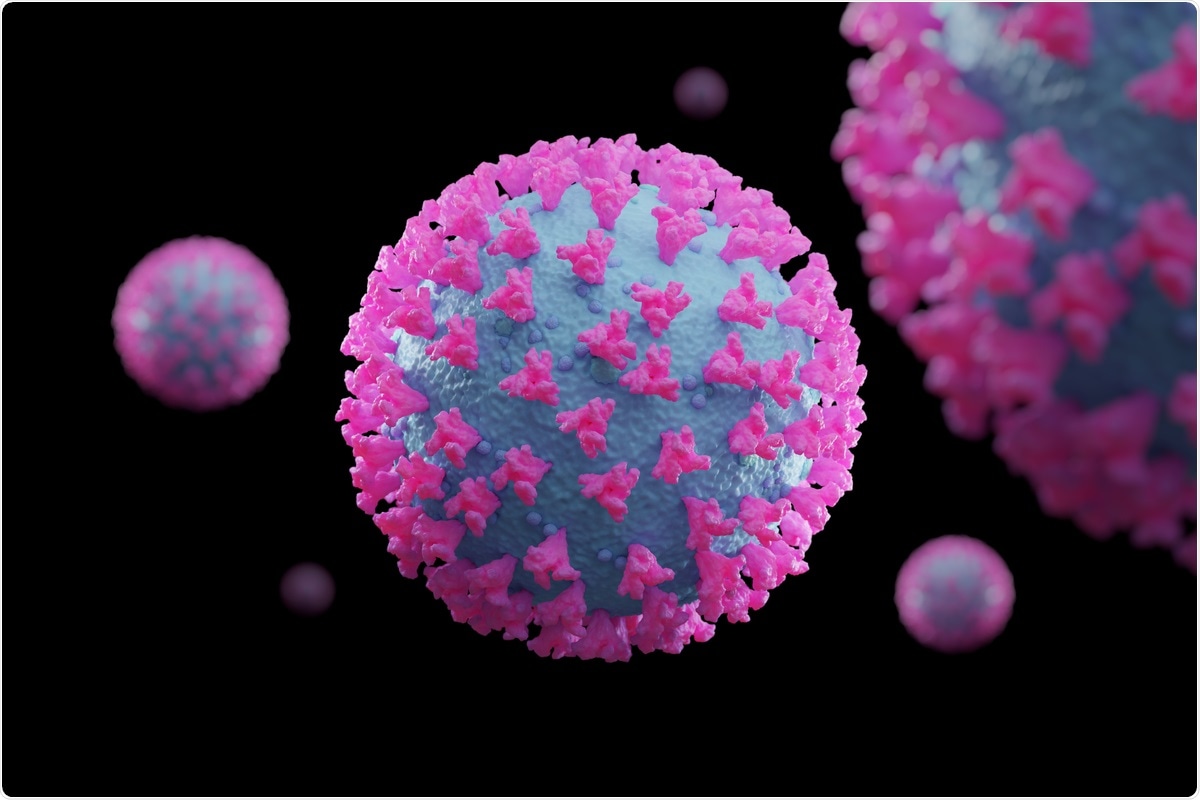In a study published in mBio, researchers from Ohio State University have been investigating mutations in the rest of the spike protein, particularly the Q677H mutation.
 Study: Neutralization of SARS-CoV-2 Variants of Concern Harboring Q677H. Image Credit: joshimerbin/ Shutterstock
Study: Neutralization of SARS-CoV-2 Variants of Concern Harboring Q677H. Image Credit: joshimerbin/ Shutterstock
Background
Since mass vaccination began, most worries about coronavirus disease 2019 (COVID-19) in developed countries focus on variants of concern (VOCs). This is because some variants, such as the Delta strain, have shown the ability to avoid both vaccine-induced and natural immunity, even remaining transmissible in vaccinated patients. Some studies have suggested that only previous infection with an alternate strain and vaccination is enough to provide protection.
Most research into mutations in VOCs has focused on the spike protein, particularly the receptor-binding domain (RBD) of the S1 subunit. The spike protein is essential to severe acute respiratory syndrome coronavirus 2 (SARS-CoV-2) pathogenicity. The RBD of the S1 subunit binds to angiotensin-converting enzyme 2 (ACE2) to permit viral cell entry, and the N-terminal domain of the S2 subunit is responsible for membrane fusion.
Q677H is a mutation that has appeared in two strains, B.1.525 and Bluebird, in Nigeria and the United States, respectively. Both of these strains command a substantial proportion of new cases in both countries. B.1.525 also includes an additional RBD mutation, E484K. Q677H is also found in B.1.1.7, B.1.351 and P1, also known as the Alpha, Beta and Gamma variants.
The researchers examined the infectivity and neutralization of Q677H bearing variants, and the effects showed when expressed in conjunction with important RBD mutations such as D614G, which is known to increase transmissibility and immune evasion.
The study
A luciferase-bearing lentiviral pseudo-type neutralization assay was used to examine neutralizing activity against VOCs. Sera were taken from nine intensive care unit (ICU) patients and nine hospitalized non-ICU patients. They ran their assay to determine neutralization activity against wild-type (WT) SARS-CoV-2 and variants with the D614G Q677H mutations.
The sera were collected a minimum of 14 days before symptom onset, and pseudo-typed viruses were adjusted to infectivity similar to that of the variant before neutralization to prevent variations in infectivity, affecting results due to changes in neutralization. As expected, the D614G mutation showed a significantly higher (50% more) neutralization titer compared to WT. The B.1.525 and Bluebird variants showed reduced neutralization titers and further reduced titers from non-ICU patients.
The researchers also looked at the neutralization abilities of sera from vaccinated individuals. They collected sera from 20 individuals close to 35 years old who had taken the Moderna vaccine and 20 individuals near 35 years of age who had taken the Pfizer vaccine. Once again, the variants with the Q677H showed reduced neutralization titers compared with D614G. Introducing the Q667H mutation to the B.1.1.7, B.1.351, and P1 variants resulted in the neutralization titers reducing by approximately 30% in B.1.1.7 and P.1. No difference was observed in B.1.351. Similar findings from other recent studies support these results.
Conclusion
The authors highlight the importance of their work in proving that the E484K mutation increases neutralization resistance and has an epistatic effect when paired with VOCs that already contain RBD mutations. They suggest that Q677H could alter spike confirmation - but this has not been observed.
Investigations into mutations seen in VOCs are increasingly important; they can help direct healthcare research, vaccine production and help target monoclonal antibody treatments at a time when WT COVID-19 is becoming less and less of a problem, and VOCs climb in number and variety.
Of most concern is the effect the E484K mutation has on sera from vaccinated individuals. Vaccines are already shown to be significantly less effective against certain VOCs. One recent study showed a 12-fold reduction in antibody binding to the Delta strain from sera gathered from vaccinated individuals. As social distancing restrictions and lockdowns end, vaccine-resistant strains could be deadly to at-risk groups such as the immunocompromised, elderly and those with respiratory conditions.